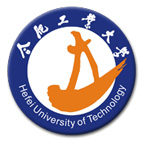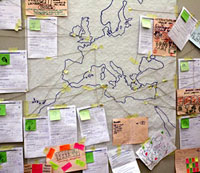
Happy Christmas to our listeners!
absolutely down-under
To be honest it feels strange to celebrate Christmas in the summer heat here at the University of the Sunshine Coast in Queensland, Australia. Back home normally we have temperatures below zero degrees Celsius and often a bit of snow, but this year I have done my Christmas shopping in shops where air conditioning from morning to evening is absolutely essential even if from the loudspeakers we are all listening to “Winter Wonderland” and “I’m Dreaming of a White Christmas”. And while the students at USC tell us about the typical Australian Christmas with seafood barbecue, salad and drinks by the swimming pool, of course different national groups also keep up their own traditions in Australia and Cassie told us about a Nigerian Christmas party with wonderful African food where Father Christmas is impersonated by a black Nigerian, which seems a wonderful opportunity for children and adults to be reminded of cultural diversity.
absolutely-experiential
In our second category we see what Canadian students can learn from ordinary Africans if they have the right attitude to learning and to their guest country. I asked John Kaethler, a colleague from Brock University in Canada why he takes students out of their regular surroundings and organizes intercultural excursions to Namibia, Botswana, and South Africa. It seems to make absolute sense that if students approach a foreign country with humility and the wish to learn they will probably get more learning out of their intercultural experience than if they followed a seminar about that country.
absolutely-prepared
So we understand that intercultural learning could be initiated by lecturers at the home university, it could be triggered by contact with people in the country that is visited but our last guest on the show stresses that the ultimate responsibility is on us, the learners and travelers and that the experience should always be accompanied by thorough reflection. In our last category Ariane Curdy explains that we need to understand our own values and backgrounds in order to be open to learn from the others.
This was the last show for the year 2009, I hope you’ll enjoy the festive season, be it in the cold or in the heat! The team of “absolutely intercultural” wishes you all the best for the year 2010. And don’t miss our next show, believe it or not this will be show No 100, and will be coming to you from Anne Fox in Denmark on 8th January 2010
Until then –
Bleiben Sie absolut interkulturell!
The host of this show is: Dr. Laurent Borgmann
Editor: Dino Nogarole

 The drumming which starts the show was recorded when the Ghanaian drummers of
The drumming which starts the show was recorded when the Ghanaian drummers of  absolutely down-under
absolutely down-under

 Even if we expect differences when we travel or meet foreigners in our own countries – the best and most intensive intercultural learning is always accompanied by small culture shocks. Our show today will focus on the
Even if we expect differences when we travel or meet foreigners in our own countries – the best and most intensive intercultural learning is always accompanied by small culture shocks. Our show today will focus on the 
 Today we will focus on the
Today we will focus on the  The unifying theme for this show is learning. Firstly learning by experience. Remember Greg Houfe from the UK who talked to us before starting a consultancy project in Denmark? As we’ll hear later he’s now not quite so sure that business practices are pretty universal within Europe. We’ll also be hearing about a very simple way of motivating people to improve their English by getting them to talk about aspects of their home culture.
The unifying theme for this show is learning. Firstly learning by experience. Remember Greg Houfe from the UK who talked to us before starting a consultancy project in Denmark? As we’ll hear later he’s now not quite so sure that business practices are pretty universal within Europe. We’ll also be hearing about a very simple way of motivating people to improve their English by getting them to talk about aspects of their home culture.